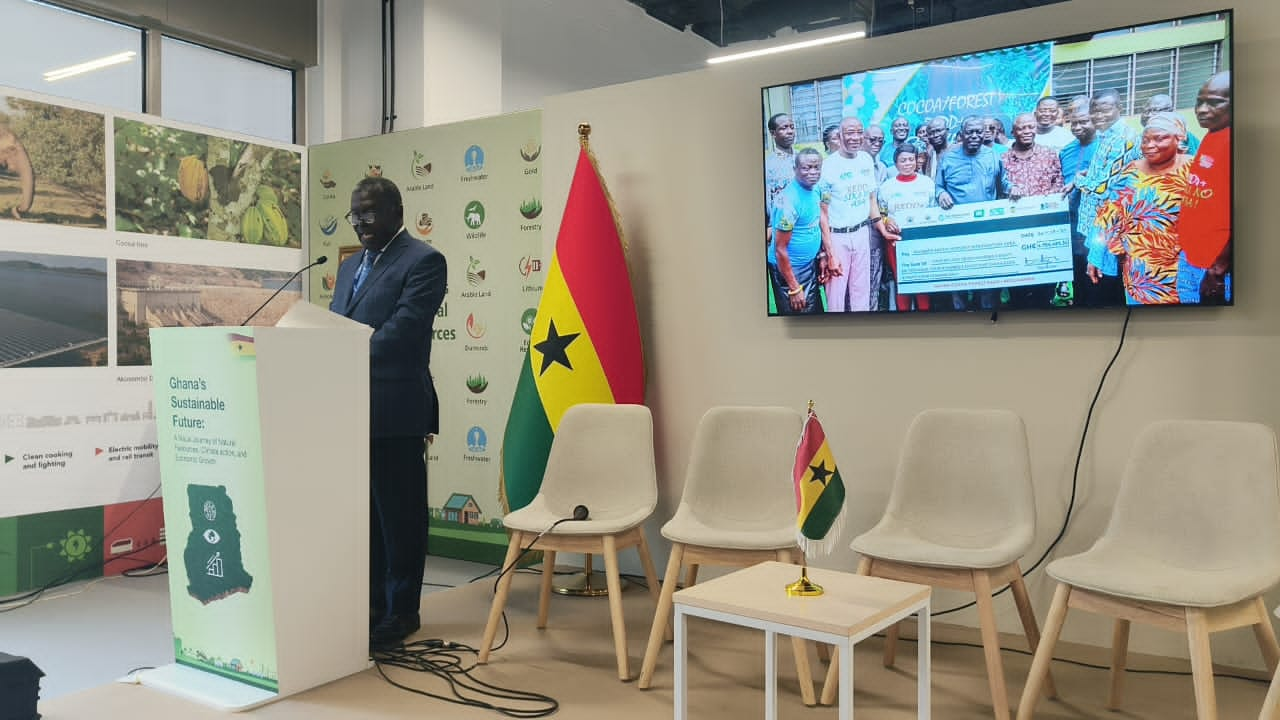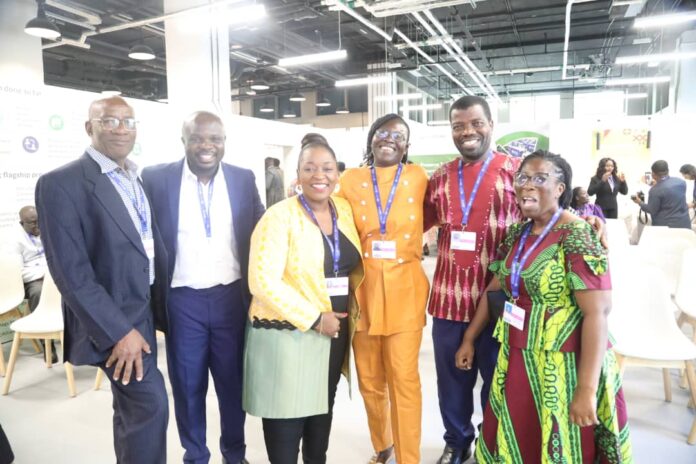The Ghana Cocoa Forest REDD+ Programme (GCFRP) has been at the forefront of Ghana’s efforts to combat deforestation and forest degradation, particularly within cocoa landscapes.
Since its inception in 2019, the GCFRP, under Ghana’s REDD+ (Reducing Emissions from Deforestation and Forest Degradation) Strategy, has been working diligently to reduce environmental harm, protect biodiversity, and promote sustainable development.
In a recent development, members of the GCFRP participated in the twenty-eighth session of the Conference of Parties (COP28) of the United Nations Framework Convention on Climate Change (UNFCCC) held in Dubai, United Arab Emirates (UAE) from November 30th to December 12th, 2023.
The GCFRP, managed by the REDD+ Secretariat at the Forestry Commission, has been working in collaboration with private sector partners to address these challenges.
The programme aims to engage local communities actively in efforts to reduce deforestation, protect biodiversity, and promote sustainable development.
During COP28, three community members from the Ghana Cocoa Forest REDD+ Program Area had the unique opportunity to participate.
These individuals, who are cocoa farmers, were selected to represent their respective communities. Al ongside representatives from indigenous people and local communities in Ecuador and Kenya, they took part in a side event organized by the Forestry Commission on “strengthening inclusion in REDD+ results-based payments.”
This event highlighted the critical role of local communities and marginalized groups, particularly women and youth, in the successful implementation of REDD+ initiatives.
In his opening remarks at the event, the Chief Executive of the Forestry Commission, Mr. John Allotey, emphasized the importance of involving forest-fringe communities in preventing further deforestation and degradation while promoting sustainable land use practices.

He highlighted the Community Resource Management Area (CREMA) as a community-driven mechanism endorsed by the government to enhance natural resource management.
Notably, women’s inclusivity has been a key focus, with 40% of women actively engaged in all landscape programs, such as the Ghana Shea Landscape Emission Reductions Project.
Chairman of the Asunafo–Asutifi Hotspot Intervention Area Board Daniel Amponsah Gyinayeh delivered a presentation on the “Fund Flow Mechanism & Inclusion of Local Communities.”
He highlighted the fair and transparent Benefit Sharing Plan, beneficiary performance indicators, and the benefits received by communities and farmer groups through the GCFRP.
These benefits have motivated local communities and farmers to embrace climate-smart cocoa farming practices, including tree planting and shade tree management.
Under the GCFRP benefit sharing, farmers have received essential inputs like knapsack sprayers, wellington boots, machetes, mist blowers, pruners, and tree seedlings to support their farming activities.
A member from the Kakum Hotspot Intervention Area, Madam Grace Asare, expressed the excitement of farmers upon receiving these inputs, describing it as a transformative experience. These benefits have not only improved their living conditions but also provided additional support during lean cocoa production seasons.
Participants from Ecuador and Kenya commended Ghana for its commitment to including local communities in REDD+ programs, setting an example for other countries.
They emphasized the importance of engaging indigenous people and local communities in the design and implementation of such initiatives, rather than treating them solely as beneficiaries.
In his closing remarks, a Deputy Minister for Lands and Natural Resources, Benito Owusu-Bio, MP, emphasized Ghana’s potential to reduce emissions while enhancing the adaptation of forest-fringe communities.
He highlighted the allocation of USD4 million to build the capacity of local communities, particularly women and youth, under the Enhancing Access to Benefits by Lowering Emissions (EnABLE) grant from the World Bank. He underscored the importance of forest-fringe communities in the success of REDD+ programmes and called for increased climate finance to support sustainable projects and empower vulnerable communities.
The three community members who participated in COP28 expressed their gratitude for the eye-opening experience and urged farmers, forest-fringe communities, and youth to embrace the REDD+ Mechanism and tree planting programmes. They emphasized the numerous benefits associated with these initiatives and joined the call for increased climate financing to advance climate mitigation efforts.













